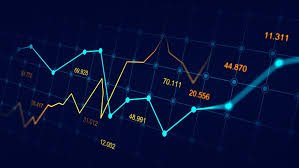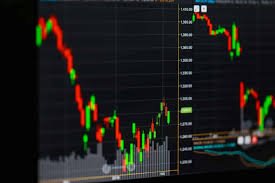
Choosing the Right Trading Platform for Forex: A Comprehensive Guide
When it comes to trading in the Forex market, one of the most crucial decisions a trader can make is selecting the right trading platform. The platform you choose can greatly affect your trading performance, providing vital tools and features to either enhance or hinder your trading experience. A good trading platform should be user-friendly, reliable, and equipped with a variety of functional tools that cater to the diverse needs of Forex traders. For more information, you can visit trading platform for forex tradingarea-ng.com, a resource dedicated to helping traders find the perfect platforms. In this article, we’ll delve into the critical aspects of choosing the right trading platform for Forex and discuss the essential features to look for, ensuring you make an informed decision.
Understanding Forex Trading Platforms
A Forex trading platform is software that enables traders to access the Forex market and execute trades. These platforms typically offer real-time quotes, advanced charting tools, technical analysis capabilities, and a range of order types. They act as an interface between the trader and the broker, providing the tools necessary for conducting research, analyzing market trends, and executing trades. There are two main types of trading platforms: web-based platforms and downloadable desktop applications. Each has its benefits and drawbacks, catering to different trading styles and preferences.
Key Features of a Good Forex Trading Platform
1. User-Friendly Interface
The usability of a trading platform is paramount. If the interface is cluttered or overly complicated, it can hinder your trading decisions. A good platform should have an intuitive design, making it easy to navigate and execute trades swiftly. Look for customizable layouts where you can rearrange charts and tools according to your preference.
2. Security and Reliability
In the digital age, security is a primary concern for Forex traders. Ensure that your chosen trading platform has robust security measures in place, such as two-factor authentication and data encryption. Additionally, consider the reliability of the platform, as downtime or technical issues can lead to missed trading opportunities.
3. Variety of Trading Tools
A quality trading platform should offer a range of tools for analysis and trading. This includes advanced charting software, technical indicators, economic calendars, and news feeds. Having access to comprehensive tools will help you make informed trading decisions.
4. Execution Speed
Execution speed is critical in Forex trading given the market’s volatility. A good platform should provide quick trade execution with minimal delays. Delays can lead to significant slippage, negatively impacting trading outcomes. Test the execution speed with demo accounts before committing to a platform.
5. Customer Support

Superior customer support can greatly improve your trading experience. Ensure that the platform offers multiple support channels, including live chat, email, and phone support. Additionally, check if they provide multilingual support if you are trading in a region where English is not the primary language.
6. Mobile Compatibility
In today’s fast-paced environment, being able to trade on the go is crucial. Look for a trading platform with a mobile application that provides access to all features available on the desktop version. This enables you to monitor your trades and make quick decisions wherever you are.
Choosing the Right Broker
Your trading platform is often tied to the broker you choose. Therefore, it’s critical to select a reliable broker that suits your trading style and needs. Here are some factors to consider when choosing a Forex broker:
1. Regulation
Ensure that the broker is regulated by a reputable authority in the financial industry. Regulatory bodies enforce strict rules and monitor brokers to protect traders from fraud. Check the broker’s compliance with relevant regulations in your region.
2. Trading Costs
Consider the costs associated with trading on the platform, such as spreads, commissions, and overnight fees. Ensure that these costs are transparent and competitive so that they do not eat into your profits.
3. Account Types
Different traders have different needs; therefore, look for a broker that offers various account types to cater to your individual trading strategy. This could include options for demo accounts, micro accounts, and standard accounts, each with varying requirements for minimum deposits and leverage.
4. Reviews and Reputation
Research the broker’s reputation by reading online reviews and testimonials from other traders. Pay attention to both positive and negative feedback, as this will give you a well-rounded view of what to expect from the broker and their trading platform.
Conclusion: Making an Informed Decision
In conclusion, selecting the right trading platform for Forex trading is a critical decision that can significantly influence your trading success. By understanding the key features to look for, the importance of choosing a reliable broker, and assessing your trading needs, you can make an informed decision that aligns with your trading goals. Always take the time to research various platforms and brokers, use demo accounts to test their features, and stay updated with market trends. With the right tools and resources, you can enhance your trading experience and work towards achieving your trading objectives.
